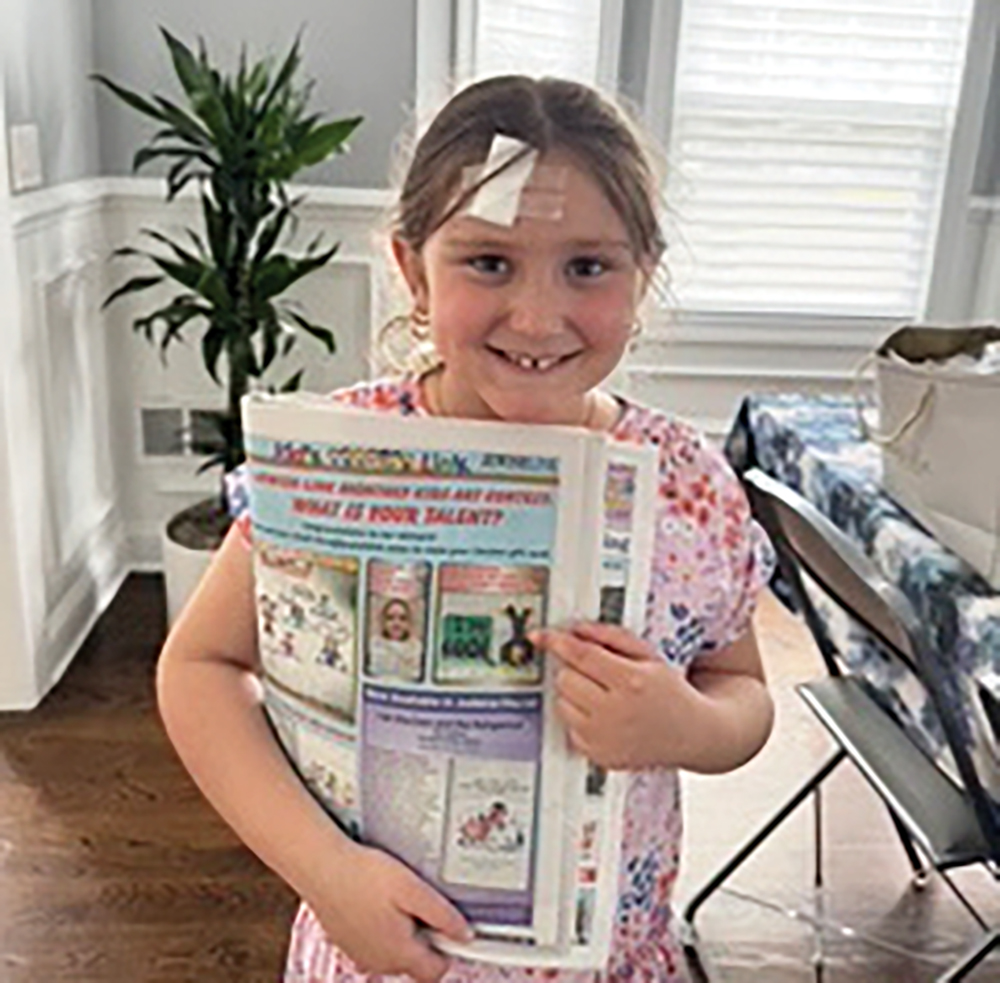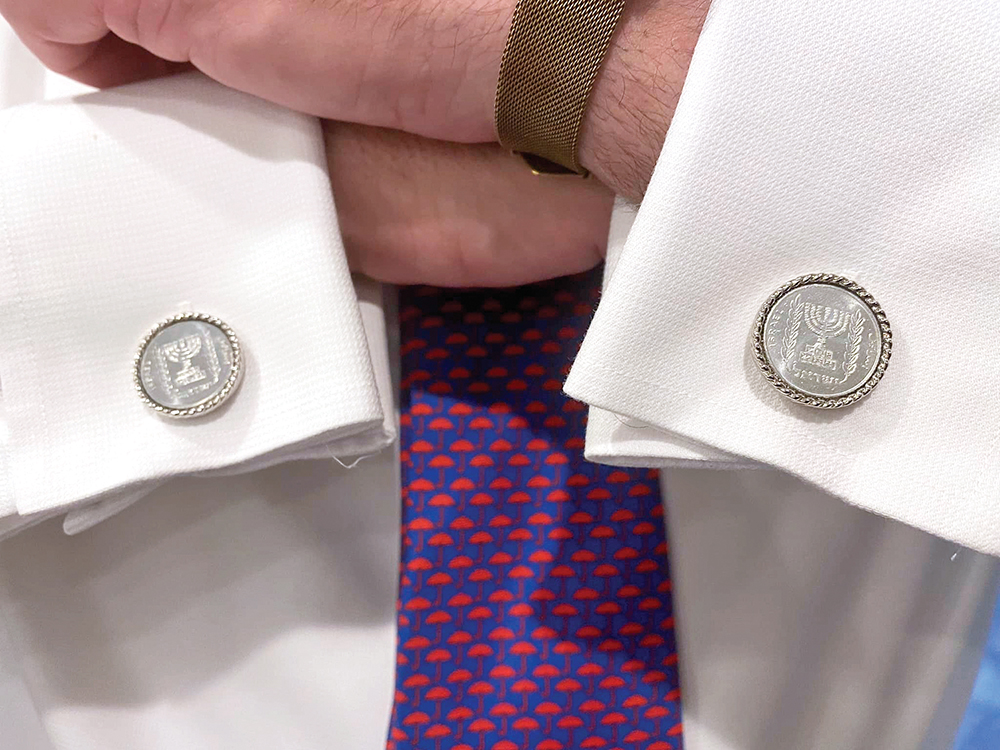Dear Dr. Chani,
During this difficult time when Israel has been forced to respond to terror attacks of unimaginable proportions, my wife has become unusually tense. She has become a bundle of nerves and is not functioning well. She is irritable and easily snaps at me and at our children.
How do I get my wife to calm down and handle this better?
Since we first heard about the terror attacks, my wife has been very panic-stricken. She is horrified by what she has seen on the news and is constantly worried about the well-being of the hostages. We also have a son who is learning in a yeshiva in Israel this year and my wife is overcome with worry about him. All day long, she checks the news for updates on the situation in Israel and checks to see if any rockets have fallen in his area. At night, my wife is glued to her phone, poring over the latest news. She gets herself so worked up that she cannot go to sleep. I often take the responsibility for taking care of our children in the morning and getting them out to school.
I explained to my wife that it is not going to help anyone for her to check the news so often and worry herself so much. I have tried to get her to turn off her phone and go to sleep earlier. But she is unwilling to change. She says that she feels that she needs to know what is going on so that she can share the burden of her fellow Jews. “If I do not read the news, then I cannot fully understand what people are going through and I cannot feel their pain,” she told me. She also feels that she needs to know as much information as possible since information is power. I told her that in this case, the information is making her weaker, but she thinks I am just unable to empathize with her.
I am trying to be as sensitive as I can and supportive of my wife. What can I do to help her during this trying time?
Thanks for your help,
Concerned
Dear Concerned,
I am sorry to hear about the tension and unrest you are experiencing at home, an unfortunate rippling effect of the crisis that has unfolded in Israel. Your wife’s reaction is not uncommon and is especially understandable considering that your son is currently in Israel, which makes the reality closer to home. Let’s explore what may be contributing to the tension and what you can do about it.
There are many ways that people react to a crisis or a tragedy. Some people naturally want to find out as many details as they can, while others prefer to limit their awareness of exactly what happened. Some people want to reach outward and help others in some way, while others tend to turn inward and strengthen themselves. We can never fully put ourselves into someone else’s shoes and understand what that person is going through. Therefore, it is important to accept and respect people who have reactions that are different from our own and from what we might expect.
At the same time, each person needs to reflect and assess their own reaction to recognize if their response is affecting their ability to function. If this is the case, the person needs to modify their reactions so that they can cope better. Your wife seems to be taking the crisis very hard to the point that she is unable to care for your family. It sounds like your wife’s desire to connect with the communal tragedy and keep a close eye on your son is ironically causing her to disconnect from her family at home.
You might discuss this with her and help her realize that connecting to her spouse and children and focusing on taking care of their needs is an essential way that she can be a source of strength and resilience in the face of tragedy. While it might seem typical and insignificant, being able to shelter your family from the negative emotional impact of the crisis and enabling family life to continue as normally as possible takes tremendous strength. This cannot be taken for granted. She has a critical role to play in this battle and this is an important way that she can stand up to and defend against the enemy.
Your instincts to encourage your wife to avoid the news are on target. Traumatizing news fosters fear and creates a feeling of hopelessness and helplessness. In this attack specifically, the enemy has made an effort to create horrifying images that spread terror worldwide. She may not realize that by focusing on the news and allowing it to emotionally drain her, she is allowing the enemy to reach far beyond its borders and attack her in her own home.
There are other ways that your wife can cope better with the crisis. Let her find what works best for her. It is helpful to have as many strategies as possible in your toolbox. Each one might be helpful at different moments in time. Here are some coping methods to consider:
One necessary and healthy skill that helps people cope with stress is to compartmentalize it. This means being able to put your thoughts and feelings in a compartment in your brain so you do not focus on them for a period of time. You might imagine as if you are putting them away in a filing box and storing them to go through at a later time. In the meantime, allow yourself to do your work, clean your home, have fun with your children, or do something relaxing. You might feel guilty doing normal or relaxing things in the face of tragedy, yet it is important for your mental health and your ability to function. You need to take time to rejuvenate yourself for your own sake and to care properly for those around you.
Many people find it helpful to talk to someone about their thoughts and feelings during a stressful time. It can be cathartic to express yourself even if it does not seem to practically change anything. Connecting to someone else who you can trust to understand you and validate your feelings can provide a feeling of relief and an energy boost.
Hug someone. Hugging makes us feel loved, secure and safe. It releases the hormone oxytocin which creates a feeling of calmness. It also promotes the hormone serotonin which makes you feel more positive and happy. Hugging has been found to lower your heart rate, reduce pain sensation and decrease your cortisol levels—which is the hormone secreted as part of your body’s response to stress. Hugging is a great way to connect with others and alleviate loneliness.
Reach out and help someone. One way to shift your focus from debilitating painful and upsetting thoughts is to take positive action. Think about what you can do to virtually light a candle and spread light in the face of darkness. When you are busy planning how to help someone or to do good, it is difficult to focus on dark thoughts at the same time. Start with the people in your own family and spread outwards. Think about what you can do for someone else, whether it can help someone in Israel or someone in your local social circles. Do a favor without expecting anything in return or for recognition, just to put a smile on someone’s face. Call someone to check in and see how they are doing. One man told me that he was moved to tears from receiving tens of calls from friends and colleagues who he had not spoken to in years who called to find out how his family in Israel was doing during this time.
Connect to Hashem. We are human and we are limited. Regardless of how much we try to make sense of things, we cannot understand the ways of Hashem. Whether in times of joy or sorrow, we need to recognize that everything is from Hashem. Hashem watches over everything in this world, and everyone. Remember that Hashem has a plan, even though we cannot understand it. Strengthen your faith and trust in Hashem.
I hope that you and your family find these strategies to be helpful and that they bring you closer to one another. Relationships are a source of tremendous resilience in times of crisis. Hopefully, you will be able to strengthen yourselves and your connection to one another during this difficult time.
May we hear good news soon,
Chani
Dr. Chani Maybruch is a social psychologist and relationship coach, specializing in teaching emotional connection and communication skills for over two decades. She coaches individuals and couples, and teaches online courses to help you create your ideal relationship. Get free relationship resources and contact her at www.chanimaybruch.com.













